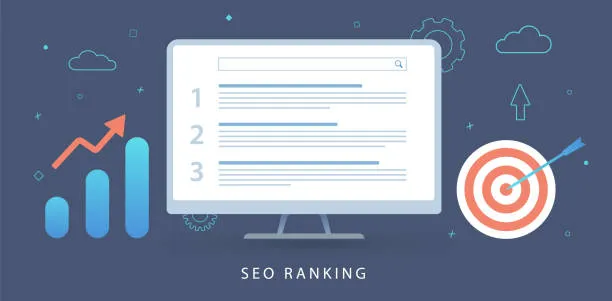SERPs Meaning: Why Are They Important In SEO
The term “Search Engine Result Pages” is easily shortened to “SERPs,” which is an abbreviation. The SERPs of various search engines like Google are the pages of search results that are returned in response to a certain search query.
Still explaining SERPs meaning, you should note that the results of every search query are always shown in descending order based on how relevant the answer is, and the first answer, which is the most detailed, is usually called a “featured snippet.”
The order of these results is determined by search engines, which take into account a vast number of elements that go beyond common knowledge. Whenever the algorithm is modified, these factors are inevitably subject to change.
It is essential that you are aware that Google and other search engines do not reveal the specifics of their algorithms, which affect the ranking factor in Google SERPs, in order to prevent spam. This is something that you should keep in mind.
In this blog article, we are going to discuss not just this topic but also a lot of additional elements. We will place a greater emphasis on the importance of search engine results pages to SEO, SERPs meaning, and the anatomy of Google SERPs.
SERPs Meaning
The acronym SERP or SERPs stands for “Search Engine Result Results,” which refers to the pages returned by Google in response to a search query entered by a user of the Internet. These are pages that provide the answer to your search query on their respective screens.
These Google SERPs could have organic search results, which are determined by SEO, paid Google Ads results, which are determined by SEM, a featured snippet, which is the top result, and plenty of other types of results.
The Google SERPs are comprised of all the components that have been discussed above; collectively, these components are known as the “anatomy of SERPs. Therefore, now that we’ve covered SERPs meaning, let’s discuss their anatomy.
The Anatomy Of Google SERPs

As a follow-up to our earlier explanation that search engine results pages (SERPs) have a broad structure with a lot of different parts, we’re going to list those parts and explain what they do.
Anatomy of the Primary Google SERPs:
- Organic Results.
- Paid Results.
Anatomy of the Secondary Google SERPs:
- Featured Snippets.
- People also ask for results.
- Knowledge Graphs & Panels.
- Local Packs.
1. Organic Result
The pages that appear in a search as a direct result of the algorithm used by Google are referred to as organic search results. Google has identified these pages as being among the most useful, and it has indexed them accordingly.
You need to implement a very high level of search engine optimization and make extensive use of keywords if you want to appear in organic listings. This will further increase the amount of free traffic that is driven to your website.
2. Paid Results
These are the search results that have been purchased in order to achieve a higher ranking on the search engine results pages (SERPs) of Google. Each and every one of them bears the symbol ” Ad”.
This is also where pay-per-click and search engine marketing (SEM) come into play, as marketers are expected to pay according to the rate at which potential customers click on their advertisements.
3. Featured Snippets
The search results that display at the very top of Google SERPs are called featured snippets. This is due to the fact that Google has determined that it is the answer that is most pertinent to that particular search query.
On the other hand, these featured snippets could come in a variety of formats, such as videos, graphs, tables, or lists. Users could be able to quickly obtain responses from it without even having to click.
4. “People Also Ask” Results
People Commonly Ask Results, also called PAA results, are a subset of organic search results that show a box with questions that are related to the search terms you entered.
The “People Also Ask” section is in the middle and at the bottom of the “search engine results page” (SERP) on Google. It has links and detailed answers to each question.
5. Knowledge Graphs And Informational Panels
Depending on the question that was asked, these will typically appear in the upper right-hand corner of certain search results. There are a reasonable number of responses to your questions within its scope.
In addition to this, it displays a reasonable quantity of information on the subject you are searching for on the search engine results page of Google. This graphical information was readily available for you to view at a glance.
6. Local Packs
This is one of the search results displayed on Google’s SERPs alongside other search engines. These local packs will only show up in your search results if any of the search queries you made had a local focus.
If you search Google for something like “top SEO companies in Lagos,” for instance, the search engine would bring up a list of local businesses in Lagos that provide SEO services.
Why SERPs Are Important To SEO?

Being at the top of the search engine results page like the Google SERPs may be a big boon for the performance of your website as well as your whole online business. Your Web visibility would also improve as a result of this.
Now that we have explained SERPs meaning and anatomy, we’ll talk about their importance to SEO and other important points in this section.
An Increase In Traffic From SEO
Since these search engine result pages are the only method that indicates how good your SEO strategy is, this is clearly the most essential reason why Google SERPs are important in SEO.
Due to the high degree of competition, however, it may at times be more difficult to appear at the top of SERPs. Therefore, to rank well on these search engine results pages, you will need to make use of the most effective SEO tactics.
The search engine results page (SERP) on Google provides a platform or page where people will be able to reach out to that material, which has been optimized for SEO in order to generate traffic. This helps to support SEO methods.
Facilitates Better Crawling
A well-thought-out Google SERPs will almost certainly lead to a higher crawl rate for the SEO-optimized content on your website, blog, or online store, which will lead to a higher rate of website indexing.
This indicates that the Google algorithm will be able to determine whether or not your material is of high quality by looking at these SERPs, given that your content has already been included in them.
In conclusion, the search engine results pages (SERPs) of the different search engines have a big impact on how well your SEO strategy works as a whole, which will directly lead to a higher percentage of organic CTR.
Contributes To One’s Credibility
When any of your content ranks at the top of the Google Search Engine Results Pages (SERPs), it contributes to the development of the credibility and authority of your website. This is one reason why Google SERPs are vital to SEO.
Appearing on the first page of the results pages provided by search engines is a fantastic method to demonstrate your level of knowledge. Because of this, people will visit your website for free, which will raise its rank.
Furthermore, when your website ranks on the first page of Google’s search engine results pages (SERPs), consumers will visit it on a regular basis, which will foster trust between you and your audience.
An Increase In The Number Of Customer Touchpoints
Always expect an increase in contact points and user interaction with your online business if you optimize for Google SERPs. With the assistance of many components, SERPs are able to improve your level of engagement.
These aspects may include the organic result, the paid result, the featured snippet, the knowledge graphs, and panels, as well as the local pack search results. Additionally, these elements may also include the local package search results.
It Improves Domain Authority And Backlinks.

One further way that Google SERPs can help with SEO is that they can improve the quality of the backlinks that point to your website and the content that you use for SEO. You can only do this if your website is always at the top of the SERPs.
This will make other websites want to link to your site because they will see that it always ranks at the top of search results. This will increase your domain authority in the long run and the number of backlinks.
You could also verify the domain authority of your website using the SEO ranking tool Goosuggest.com. This tool is available to you. If you are aware of this, you will have a better insight into the importance of SERPs for your SEO strategies.
SERPs Meaning: Concluding Remarks
When you have a better understanding of how Google SERPs function and the technology that underpins them, you will have a better idea of how to modify the content of your website so that it appears in the top results of SERPs.
As a result, reading the specifics of this blog post, titled “SERPs Meaning and Why Are They Important in SEO,” will undoubtedly provide you with a better understanding of how to improve your SEO strategy.
For the time being, that will have to do. As is customary, please share your experiences using the comment section to discuss how the Google Search Engine Results Pages have influenced your SEO strategies. Stay tuned for the next blog post.
Read Also: Best SEO Package Prices: How Much Does SEO Cost In Nigeria?






